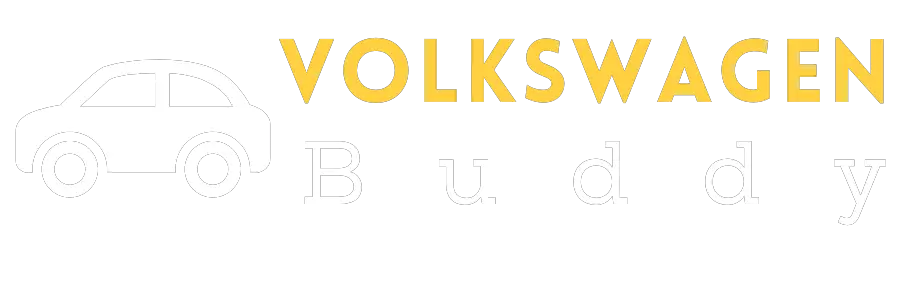Volkswagen Engine Misfire: Diagnosis and Repair Tips
Volkswagen engines are known for their reliability and performance, but like any other engine, they can experience problems, including misfires.
A misfire is when one or more cylinders in the engine fail to ignite properly, causing a loss of power, rough idling, and increased emissions.
Misfires can be caused by a variety of factors, including faulty spark plugs, ignition coils, fuel injectors, and more.
Diagnosing and repairing a misfire in a Volkswagen engine can be a complex and time-consuming process, requiring specialized tools and knowledge.
Mechanics need to follow a systematic approach to identify the root cause of the problem and determine the best course of action to fix it.
In some cases, the solution may be as simple as replacing a faulty spark plug or ignition coil, while in other cases, more extensive repairs may be required.
Symptoms of a Misfiring Volkswagen Engine
A misfiring engine can be a frustrating and potentially dangerous problem for Volkswagen owners. Here are some common symptoms of a misfiring Volkswagen engine:
Rough Idle
One of the most noticeable symptoms of a misfiring Volkswagen engine is a rough idle. The engine may sound like it is struggling or shaking, and the car may vibrate or jerk while idling. This can be caused by a variety of issues, including a faulty spark plug or fuel injector.
Loss of Power
Another symptom of a misfiring Volkswagen engine is a loss of power. The car may feel sluggish or unresponsive when accelerating, and it may take longer than usual to reach normal speeds. This can be caused by a variety of issues, including a clogged fuel filter or a malfunctioning ignition coil.
Engine Stalling
In some cases, a misfiring Volkswagen engine may stall while driving. This can be a serious safety issue, especially if it happens while driving at high speeds. A misfiring engine can be caused by a variety of issues, including a faulty crankshaft position sensor or a malfunctioning fuel pump.
If you experience any of these symptoms, it is important to have your Volkswagen inspected by a qualified mechanic as soon as possible. Ignoring a misfiring engine can lead to further damage and potentially expensive repairs.
Causes of a Misfiring Volkswagen Engine
A misfiring engine can be a frustrating and potentially dangerous problem for Volkswagen drivers. Fortunately, there are several common causes of engine misfire that can be diagnosed and repaired by a trained mechanic. In this section, we will explore some of the most common causes of engine misfire in Volkswagen vehicles.
Faulty Ignition System
The ignition system is responsible for producing the spark that ignites the fuel in the engine. If any part of the ignition system is faulty, it can cause the engine to misfire. Common ignition system problems include:
- Failed spark plugs
- Bad ignition coils
- Loose or damaged electrical connections
If the ignition system is the cause of the misfire, a mechanic will typically replace the faulty components and ensure that all electrical connections are secure.
Clogged Fuel Injectors
Fuel injectors are responsible for delivering fuel to the engine. Over time, fuel injectors can become clogged with dirt and debris, which can cause the engine to misfire. Symptoms of clogged fuel injectors include:
- Loss of power
- Poor fuel economy
- Engine misfire
If clogged fuel injectors are the cause of the misfire, a mechanic will typically clean or replace the injectors to restore proper fuel delivery to the engine.
Vacuum Leaks
Vacuum leaks can cause a variety of problems in a Volkswagen engine, including misfires. A vacuum leak occurs when air enters the engine through a crack or hole in the vacuum system. Symptoms of a vacuum leak include:
- Engine misfire
- Loss of power
- Poor fuel economy
If a vacuum leak is the cause of the misfire, a mechanic will typically locate and repair the leak to restore proper engine operation.
Diagnosing a Misfiring Volkswagen Engine
When a Volkswagen engine misfires, it can be a frustrating and potentially dangerous problem. However, diagnosing the issue can be easier than you think. Here are some steps to help pinpoint the problem:
Check Engine Light Codes
The first step in diagnosing a misfiring Volkswagen engine is to check the engine codes with an OBD-II scanner. This will help identify any specific cylinders that are misfiring and give you a starting point for diagnosis.
Compression Test
If the check engine light codes don’t provide a clear answer, the next step is to perform a compression test. This will help determine if there are any issues with the engine’s internal components, such as worn piston rings or a blown head gasket.
- Low compression in one or more cylinders can indicate a problem with the engine’s internal components.
- If all cylinders have low compression, the issue may be with the timing chain or belt.
- If compression is good in all cylinders, move on to the next test.
Fuel Pressure Test
The final step in diagnosing a misfiring Volkswagen engine is to perform a fuel pressure test. This will help determine if there are any issues with the fuel delivery system.
- Low fuel pressure can cause a misfire and may indicate a failing fuel pump or clogged fuel filter.
- If fuel pressure is good, the issue may be with the fuel injectors.
By following these steps, you can diagnose and repair a misfiring Volkswagen engine and get back on the road with confidence.
Repairing a Misfiring Volkswagen Engine
Replacing Spark Plugs and Ignition Coils
One common cause of engine misfire is faulty spark plugs or ignition coils. If the spark plugs or ignition coils are worn out or damaged, they may not be able to provide the necessary spark to ignite the fuel in the engine. To fix this issue, the mechanic will need to replace the damaged spark plugs or ignition coils with new ones. This is a relatively simple and inexpensive repair that can be done in a short amount of time.
Cleaning or Replacing Fuel Injectors
If the fuel injectors are dirty or clogged, they may not be able to deliver fuel to the engine properly, which can cause misfires. The mechanic can clean the fuel injectors using a special cleaning solution, or they may need to be replaced if they are severely damaged. This repair can be more complex and time-consuming than replacing spark plugs or ignition coils, but it is still a relatively common and straightforward repair.
Fixing Vacuum Leaks
Another common cause of engine misfire is a vacuum leak. If there is a leak in the vacuum system, it can cause the engine to run lean, which can lead to misfires. To fix this issue, the mechanic will need to locate the source of the leak and repair it. This may involve replacing damaged hoses or gaskets, or repairing cracks or other damage to the vacuum system. This repair can be more complex and time-consuming than replacing spark plugs or ignition coils, but it is still a relatively common and straightforward repair.
Preventing a Misfiring Volkswagen Engine
Regular Maintenance
Regular maintenance is the key to preventing engine misfires in your Volkswagen. Follow the recommended maintenance schedule provided by the manufacturer, which includes regular oil changes, air filter replacements, and spark plug replacements. Regular maintenance helps to ensure that your engine runs smoothly and efficiently, reducing the risk of misfires.
Using High-Quality Fuel and Oil
Using high-quality fuel and oil is essential to maintaining the health of your Volkswagen engine. Low-quality fuel can contain impurities that can damage your engine, while low-quality oil can cause buildup and clogs in your engine’s internal components. Always use the recommended fuel and oil for your Volkswagen, and choose high-quality options to ensure the best performance and longevity for your engine.
Driving Habits
Your driving habits can also affect the health of your Volkswagen engine. Avoid harsh acceleration and braking, as this can put unnecessary strain on your engine and increase the risk of misfires. Drive at a consistent speed whenever possible, and avoid overloading your vehicle with heavy cargo. By driving responsibly, you can help to prevent engine misfires and extend the life of your Volkswagen.

![2012 Volkswagen Jetta Sportwagen Tdi Engine Code [Answered]](https://volkswagenbuddy.com/wp-content/uploads/2024/05/2012-volkswagen-jetta-sportwagen-tdi-engine-code-answered_4229-768x531.jpg)

![Check Engine Code P0401 Volkswagen Jetta Diesel [Explained]](https://volkswagenbuddy.com/wp-content/uploads/2024/05/check-engine-code-p0401-volkswagen-jetta-diesel-explained_4247-768x531.jpg)


